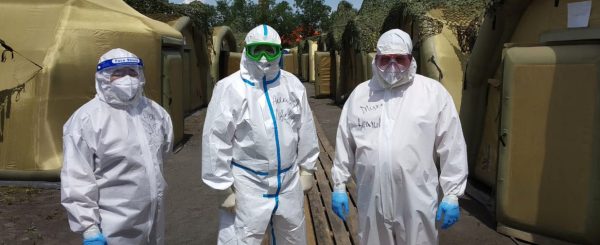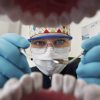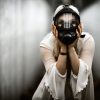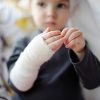 Eight Moscow doctors returned from the Republic of Tuva, where the number of cases of COVID-19 exceeded 5.2 thousands. They worked in Kyzyl, at the hospital, where the most severely ill patients stay, including those with a complicated course of the disease, with the third and fourth degree of lung damage, and those with concomitant pathologies complicating the course of COVID-19.
Eight Moscow doctors returned from the Republic of Tuva, where the number of cases of COVID-19 exceeded 5.2 thousands. They worked in Kyzyl, at the hospital, where the most severely ill patients stay, including those with a complicated course of the disease, with the third and fourth degree of lung damage, and those with concomitant pathologies complicating the course of COVID-19.
Maxim Luzin, an anesthetist and resuscitator at the Pirogov Center, told Pravmir why he went to Tuva, how the prohibition of alcohol in the region is connected with the pandemic, and how the Moscow team managed to help the Tuva residents.
Why Hospitals Were Crowded
– When did you personally start working with coronavirus? Is this your first trip to the region?
– On April 6, a hospital was opened at the Pirogov Center for the treatment of patients with COVID-19, from the first day I joined the team. My colleagues flew to Dagestan, shared their impressions, we were also ready to fly and help, taking into account our experience. This was my first trip to the region.
– Did you and your colleagues understand that Tuva was not coping and that it needs help?
– At first, at our center, we simply worked tirelessly. There was still no debugged mechanism for combating coronavirus, nor adequate distribution of patients in beds, there was no understanding of which patients needed to be hospitalized and which could be on home treatment, receiving outpatient care.
The way COVID-19 proceeds depends on many factors – the patient’s age, his concomitant diseases, lifestyle, weight, height, and others. Over time, we realized that there was no need to hospitalize patients with no changes in the lungs on CT.
In the Republic of Tuva, we saw that a large number of people who did not need total medical supervision stayed in the hospital. Although they could well be observed on an outpatient basis and undergo a course of therapy without hospitalization, observing changes in their condition. Largely because of this, hospitals were crowded.
– How and why did you decide to go? Did you have a personal motive?
– None of us were forced into this trip; everything was done at will. They asked: “Will you go?”, I answered: “I’ll go.”
I work in the intensive care unit for patients of the most severe resuscitation category (intensive care): with a complicated course of the postoperative period, with a developed severe infection, requiring replacement of the functions of the kidneys, liver, lungs due to disruption of their work. At the same time, I had my professional interest: I rarely encountered the treatment of patients with SARS, accompanied by severe respiratory failure.
And to some extent, I took this stage of my work, this trip as a challenge: how much can I help people?
And, on the other hand, I was very concerned about getting knowledge about this disease, because, like each of us, I have a family, and the first thing we think about is to learn as much as possible in order to protect our loved ones.
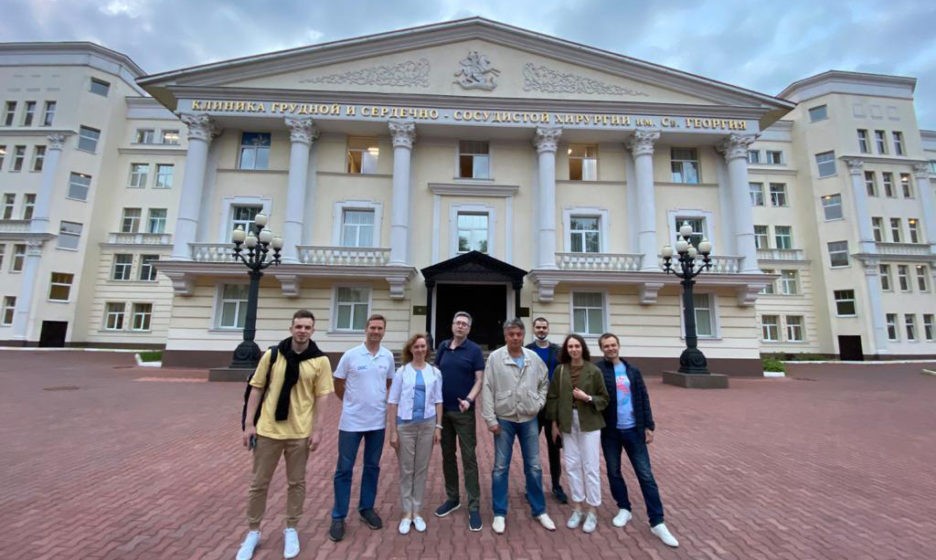
– Who initiated the arrival of Moscow doctors in Tuva – the authorities of the republic or the Ministry of Health of the Russian Federation?
– The request was sent from Tuva, and the Ministry responded to it.
Only for the third month we ourselves began to better understand COVID-19, although I cannot say that we absolutely understood everything. There is still no 100% effective technique, although the number of patients has exceeded 11 million in the world. But we went this way three months long, cured more than a thousand patients, we had some experience.
First of all, it was necessary to come to the place and determine what our colleagues needed. When we arrived, we realized that there were no problems in the vital equipment and medicines, but the staff of resuscitators was quite limited.
Our first task was the organization of the treatment process. We helped in sorting patients, in determining the possibility of transferring the patient to the intensive care unit or, conversely, from it to the infectious ward for aftercare.
In parallel with colleagues, we debugged the criteria and the process of discharge of patients, as some symptoms can persist for a long time, determining the rehabilitation period – sometimes up to two months or more. People with severe coronavirus during treatment spend a long time in bed, including in the pron-position (position on the abdomen), of course, the restriction in motor activity leads to muscle hypotrophy. Returning to the lifestyle that they led without a hospital is difficult without outside help.
Determining the time frame when a patient can be transferred to a general ward, and then home, was a key point in our work. If before us they hospitalized 120-150 patients per day, then after adequate sorting, this number almost halved.
– That is, first of all, it was necessary to structure the process? Have you done it?
– We already saw the results on the third day. After the introduction of schemes that reduced the amount of work for doctors and reduced their psycho-emotional load.
The peculiarity of the republic is that the population is small and many people know each other. This sometimes causes subjectivity in decision-making: the patient is someone else’s acquaintance or relative, so the doctor may be biased towards him. And when the question arises of transferring him from intensive care to the general ward or prescribing any medication, the doctor begins to play it safe.
Just to facilitate decision-making, a number of scales were introduced, one of which was the NEWS2 scale, which was developed on the basis of the Anesthesiology-Resuscitation Unit No. 1 of the Pirogov Center. It helps to quickly determine, in just a couple of minutes, the category of severity of the patient. On its basis, the patient is hospitalized in a specific department – infectious or resuscitation.
In addition, daily calculating scores, we more objectively assessed the dynamics of the disease: whether the patient was recovering, or vice versa – there was deterioration. We shared this scale with our Tuva colleagues. And, in turn, they learned something themselves.
– For example?
– For example, we practically did not use non-invasive ventilation of lungs (NIVL), we used more high-flow inhalation and invasive ventilation. Non-invasive ventilation is breathing with the device through a special mask, while invasive ventilation requires medicinal sleep, installing a special tube in the patient’s trachea in anesthesia.
In Tuva, the possibilities of high-flow inhalation are limited. My colleagues had to quickly deploy a coronavirus hospital, and therefore the load on oxygen stations increased sharply. Given the great need for high-flow plants in oxygen, my colleagues used a good alternative – NIVL. For us, the experience of solving this problem was interesting.
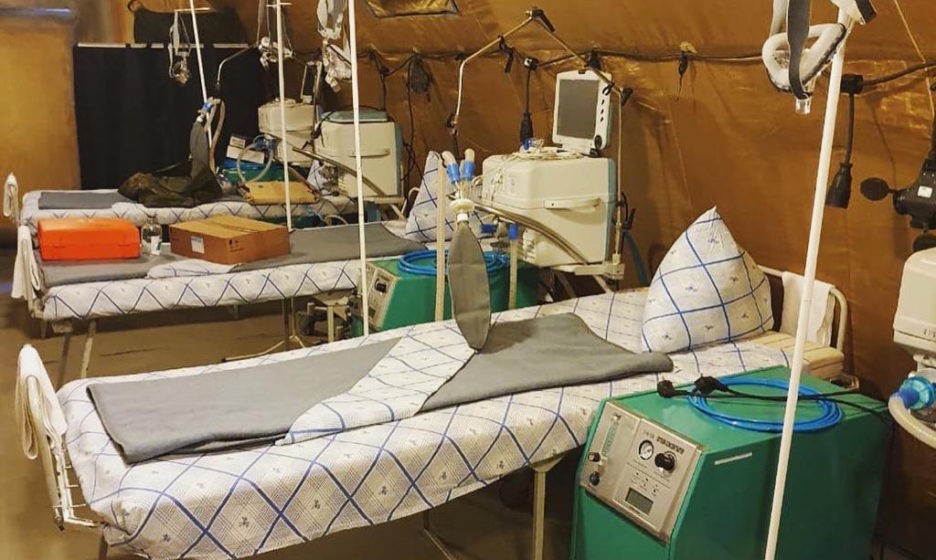
Moreover, there is no evident foundation in favor of greater efficiency of high-flow inhalation in comparison with NIVL.
Prohibition of Alcohol against COVID-19
– Was the region ready for an outbreak of infection, in your opinion?
– I repeat: the insanely crowded hospitals were due to the fact that people, watching TV, demanded hospitalization without reason. And the doctors could not refuse them because of their humanity. About 30 per cent of the hospitalized patients could well be treated at home.
By the way, there are enough ventilators in Tuva, 52 equipped bunks. And doctors are perfectly able to work with them. At the same time, it seemed to us that the number of patients with mechanical ventilation was slightly less there than in our region. Perhaps this is due to the fact that Tuva doctors started non-invasive ventilation of the lungs quite early and the course of the disease of their patients proceeded slightly better in comparison with our region.
Maybe because our center often received patients already in serious condition, for example, after 1-1.5 weeks of home self-medication, a certain part of the time was lost. In Tuva, on the contrary, people used to seek medical help earlier. In any case, you need to evaluate on completed cases, I hope that my colleagues will soon complete their mission with a victory.
– What surprised you on this trip?
– When we arrived, we asked: “Why is this happening like this here, where does such a large number of patients come from?” The reason was simple, both doctors and the hospital administration spoke about it.
Tuva residents are very friendly people.
When someone’s relative was discharged from the hospital, his family and friends were so happy that they met and celebrated this event with companies of 20-30 people each.
Thereby provoking the spread of coronavirus. In order to somehow limit these gatherings, a prohibition of alcohol was introduced in the republic – restrictions on the sale of alcohol. It is still valid.
– What population groups are at risk? Can we say that Tuva repeats the Moscow “script”? Or is there a specificity?
– Now we already understand: the peculiarities of this disease are that there are no certain groups that are more prone to it. In Tuva, there were many patients aged 30–40 years. Thank God, we practically did not see children among the patients.
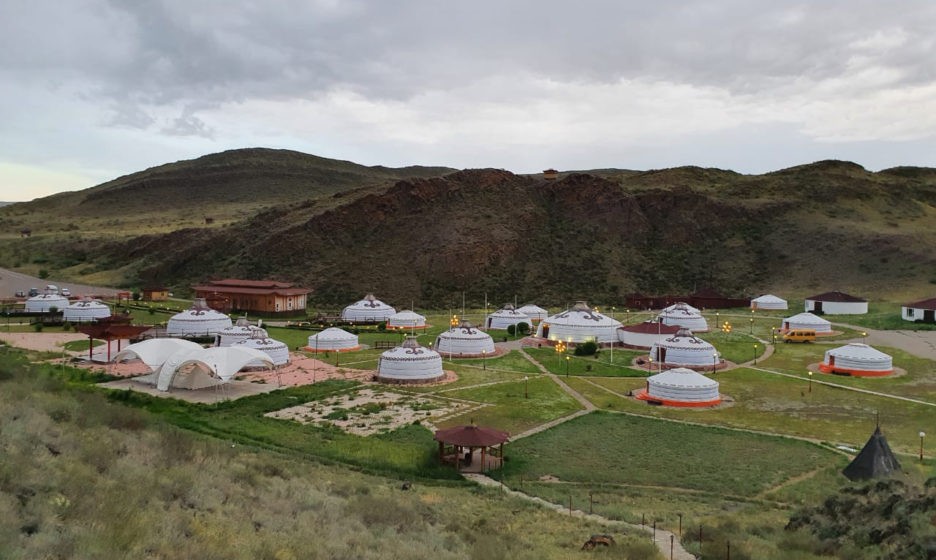
The worst thing is when a person is dying and you cannot help
– Are there any problems that you have not yet solved?
– There have been problems and there always will be. For example, in Tuva hospitals, medical personnel are constantly changing. Before this, you need to undergo a two-week observation. And this partly increased the burden on doctors. Specialists who received a positive result on the COVID-19 in the middle of the working week could no longer work. It was especially difficult if they had no replacement.
Therefore, we were replaced by colleagues from Moscow, who will continue to monitor and regulate the treatment process, to change something in terms of hospitalization, treatment tactics, based on new data. COVID-19 treatment does not stand still, some drugs are eliminated, some are added.
– What is the worst thing that you saw?
– The worst thing was to see a person dying, and realizing that you cannot help him in any way. For me, it was always the most difficult experience in intensive care. It remains such to this day. Unfortunately, this week in Tuva there were fatal outcomes.
– They write that transport does not work in Kyzyl, they try as much as possible to introduce security measures, but people do not follow safety rules, is that so?
– Yes, the transport does not work, but only half of the people wear gloves and masks.
People do not believe in this disease until it touches their relatives. Then they seem to wake up.
This is a big problem for a huge country, despite the fact that the media work very well for us.
– Tuva is a republic with its own national flavor. Did you feel it somehow?
– We did not expect such a warm welcome, everyone was very friendly and happy to help. It wasn’t such that “Muscovites flew to teach us life.”
All doctors working during the epidemic are psycho-emotionally exhausted. And we came to support them morally. “Colleagues, you are great,” was the first thing we said. We assumed a more depressing situation and more severerely ill patients, but Tuva doctors did everything so that a large mass of patients did not go into a difficult group.
We were provided with all the conditions for work – food, accommodation, business vehicles.
The Epidemic Is Not Over Yet
– How do you assess the stage of the epidemic now, in connection with the relaxation of restrictions? Some people are already planning a vacation, trip, going to the sea. What do you think of this as a doctor?
– Thanks to timely preventive measures introduced by our government, we saw a smoother start and course of the epidemic, without a shortage of beds in medical facilities. Now we see the epidemic subsiding, but at the same time we need to understand that it’s too early to “relax”. Assessing all the risks, I stay at home with my family for a two-week vacation.
– Talking about it is like guessing on the coffee grounds, but do you have any suggestions when the epidemic will finally decline and we will return to normal life?
– In the metropolitan area, despite the weakening of measures, there are fewer patients, there is no new outbreak. But this does not mean that there will be no second wave. The Pirogov center, for example, is preparing to resume work as usual, while at the same time it is ready to return to the infection profile.
If you look at the world, then recently in the United States the second wave began, in China there were also episodes. And to say that everything is wonderful with us is too early.
The virus mutates, it can go into more severe forms, there is no vaccine yet, it cannot be said that the disease precisely forms immunity and it is impossible to get infected again. So far, the situation in our country is controllable, but we cannot say that it is controllable in the world. In any case, we have not yet managed the epidemic, and safety precautions must be observed.
Translated by pravmir.com












